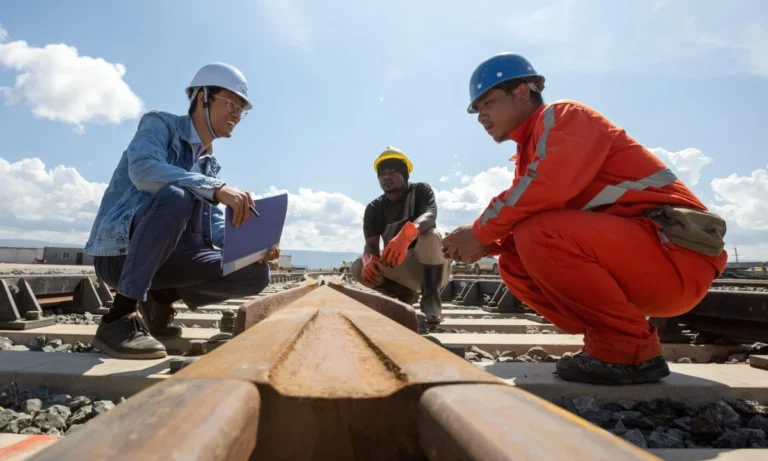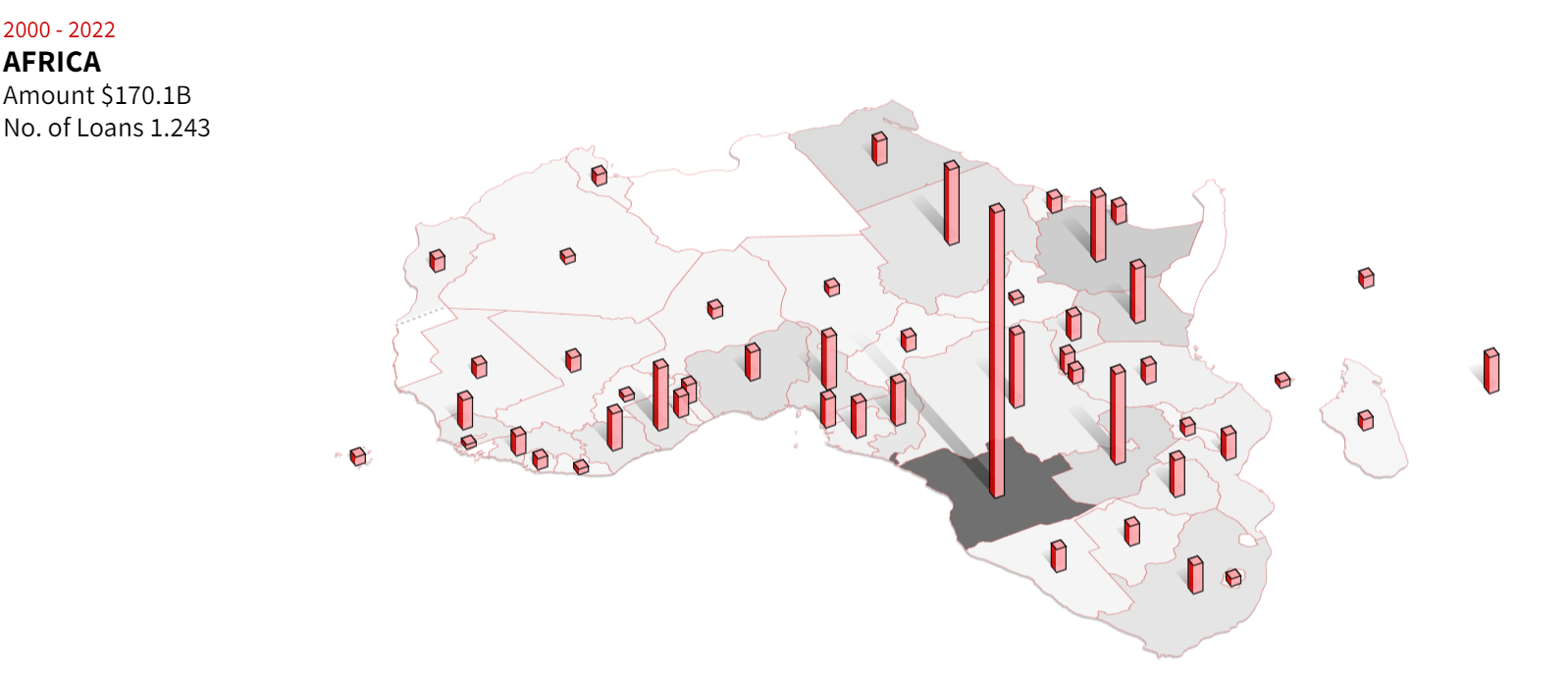Goodbye Africa: 64% of Chinese expats in Africa have returned home since the peak in 2015

At the turn of the century, former Chinese President Jiang Zemin's push for businesses to "go out" saw thousands of continental companies head to Africa in search of new markets and raw materials. It dismantled a promising wave of emigration that would tighten ties between the East and Africa, but not everything went as planned.
With them, thousands of Chinese immigrant workers. Indeed, in 2015 it was estimated that there were around 263,000 Chinese workers in Africa , but this is no longer the case. Since peaking in 2015, the number of Chinese workers in Africa has declined significantly, largely due to the drying up of funding for infrastructure projects, exacerbated by the coronavirus pandemic.
According to a recent working paper on China's economic engagements with Africa, published in February by the International Monetary Fund (IMF), by the end of 2021, the official number of Chinese workers in Africa will be around 93,000, a decline of 64 percent compared to 2015. Both Algeria and Angola stand out in this metric, with a nearly 90 percent reduction in the number of registered Chinese workers. These are two countries that have greatly eased their ties with Beijing after initial enthusiasm.
The document notes, however, that the real total may be slightly higher, as these numbers do not include informal migrants such as private traders, investors and shopkeepers.
The decline in workers is inextricably linked to the gross annual revenue of Chinese companies' construction projects in Africa.
“There is a positive correlation between the number of Chinese workers and the gross revenues of Chinese companies in Africa, especially before the pandemic,” the IMF document states.
The IMF document states that the revenues of Chinese companies engaged in engineering and construction projects in Africa reached their peak in 2015, after which they began to gradually decline. In 2021, the revenue figure was $37 billion, a decline of 3 percent from the previous year.
According to data compiled by the China Africa Research Initiative (CARI) at the School of Advanced International Studies (SAIS) at Johns Hopkins University, the number of Chinese workers in Africa fell again in 2022, reaching a new low of 88,371.
The pandemic was responsible for much of the decline. In 2020 alone, there was a 49 percent decrease in workers due to travel difficulties caused by Covid restrictions.
“So construction was still down in 2022 due to Covid; China didn’t open its borders until January 2023,” said Deborah Brautigam, professor emeritus of international political economy and director of CARI. Looking at the figures for 2021, CARI data showed that of the 93,526 Chinese workers in Africa, 72,526 were in the project contract sector and 21,000 in services, including manufacturing workers, hotel workers and chefs. In 2022, there will be 62,686 Chinese workers in the project contracting sector and 25,685 in services, according to CARI.
As of 2022, the top five countries with Chinese workers were the Democratic Republic of Congo, Algeria, Egypt, Nigeria and Angola, accounting for 42% of all Chinese workers in Africa.
CARI data also showed that in 2013, Angola had 50,526 Chinese workers, but the number dropped to 6,784 by 2022. Similarly, Algeria had 91,596 Chinese workers in 2015, but by 2022, the number of Chinese workers had collapsed to 7,462.
Dominik Kopinski, associate professor at the Institute of Economics at the University of Wroclaw and senior consultant at the Polish Economic Institute, said that in Angola, the decline is directly linked to two factors: the economic crisis following the collapse of the price of oil after 2014 and the drying up of Chinese loans.
A massive presence linked to state funding
CARI's Brautigam said the presence of Chinese workers is closely related to the availability of financing for projects, such as bank loans in Angola and the Republic of Congo or revenues from raw material exports in Algeria.
He said Chinese loans for projects flattened and then fell after peaking in 2013, as Africa looked riskier due to sharp declines in the price of raw materials, such as oil.
The decline in public investment, massively linked to the Belt and Road Initiative, has led to the demise of most Chinese state-owned enterprises (SOEs) and their workers, as well as many Chinese businesses that cater to Chinese immigrants, such as restaurants.
An exemplary case is Angola: after the end of the civil war in 2002, the government essentially outsourced national reconstruction to Chinese companies. This has resulted in a significant influx of Chinese SOEs, subcontractors and approximately 300,000 migrants. When relations cooled and investments ended, the large flow of immigrants stopped and was partially replaced by a very different flow, made up of families and small businesses.
Egypt, in contrast, has seen an increase in Chinese workers in recent years, albeit modest. The massive Suez Canal projects and construction work on the new administrative capital of Cairo were undertaken by Chinese companies. This meant that the number of Chinese workers rose from just over 2000 in 2015 to 7,358 in 2022.7
The story is similar in the DRC. Chinese investors and migrant workers have continued to follow the fortunes of the country's mining industry, which supplies most of China's cobalt. The number of Chinese workers in the DRC rose to 8,705 in 2021, from 5,155 in 2014. This figure does not include many other undocumented Chinese immigrants who run small businesses, including in artisanal mining.
However, in overall terms, the Chinese presence in Africa is decreasing, and this is a sign that Beijing's expansionism on the continent, however, is encountering unexpected problems.

Thanks to our Telegram channel you can stay updated on the publication of new Economic Scenarios articles.
The article Goodbye Africa: 64% of Chinese expats in Africa have returned home since the 2015 peak comes from Economic Scenarios .
This is a machine translation of a post published on Scenari Economici at the URL https://scenarieconomici.it/africa-addio-il-64-degli-espatriati-cinesi-in-africa-e-tornato-a-casa-rispetto-al-picco-del-2015/ on Mon, 11 Mar 2024 13:30:47 +0000.

